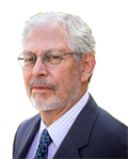Intuition
The Connection Between Intuition and Expertise
Are they opposites or are they closely related?
Posted January 7, 2020 Reviewed by Jessica Schrader
Sometimes you come across an article so misguided that, despite all the important work piling up on your desk, you just have to respond. That’s what happened to me a few days ago.
A quiet Sunday evening, I was reading the first Sunday New York Times of the new year: January 5, 2020. And there it was: the Business section with an opinion piece by Robert Shiller, “Trust your gut? Use your head.” Ordinarily, I would just move on to more useful articles, but not yesterday; the piece was published in the Sunday Times and the author is a 2013 Nobel Laureate, an economics professor at Yale, and a best-selling author. He has been listed as one of the 100 most influential economists of the world for the past decade and has many more honors and credentials than I can list here. Shiller deserves to be taken seriously.
Shiller opens his essay with his concern that the stock market is over-valued, and I (a non-economist) suspect he might be right. After all, the stock market moves in cycles, as we all know.
But Shiller speaks to more than that. The culprit that has outraged him is that people are relying on gut feelings and intuition, rather than expertise—especially his expertise. And that’s his real topic—that respect for expertise is diminishing and respect for intuition is increasing. So this essay of his is a “things are going to hell” diatribe.
What’s his evidence? Exhibit A references that the scientific method in newspapers is lower now than in the 1940s. Really, that’s his evidence? Exhibit B is this: the phrases “gut feeling," "visceral feeling,” and “trust your gut” are increasing in the media. Exhibit C is then a cherry-picked set of three books that extol gut feelings. One is by Jack Welch, the CEO of GE from 1981 to 2001. Another is Walter, Isaacson’s biography of Steve Jobs. An argument could be made that Jack Welch, with his wealth of experience, did possess a great deal of expertise. The same argument might extend to Steve Jobs, who pioneered the iPhone without any “scientific” market research to back it up. Regardless of one’s feelings about Welch and Jobs, citing books such as these does not constitute a scientific argument.
Now, I happen to agree with Shiller about a diminished respect for expertise and have written about this trend (Klein et al., 2019), which my colleagues and I call a "War on Expertise." Shiller, unfortunately, tangles up expertise with the scientific method and other topics, creating confusion rather than clarity. Shiller appears to believe that true experts are scientific researchers rather than experienced decision-makers, whereas I take a contrary view. I see experts as highly skilled practitioners, who see things others don't, and consistently make better decisions than the rest of us. I have identified seven criteria for identifying experts.
For someone with a reputation for scholarship, Shiller seems content to convey his impressions and prejudices without any pretense of scholarship. He ignores contrary evidence, such as the influence of the Heuristics and Biases community which mounts its own critique of intuition. He has chosen to write a polemic.
However, the real problem I have with his essay is that he argues that intuition and expertise are opposites, that relying on intuition means rejecting expertise. I think Shiller has gotten it backward. My own view is just the reverse—informed intuition is the basis for expertise.
Looking at the positive side, Shiller’s essay provides an opportunity to clarify the relationship between intuition and expertise. Kahneman and Klein (2009) described some of the conditions under which expertise can develop and can be expressed as informed intuitions—the intuitions of firefighters for example. And perhaps the intuitions of Jack Welch and Steve Jobs.
I did a thought experiment and imagined a Shiller-clone relying on pure analysis divorced from experience running GE for 20 years, or running Apple during its exciting period of innovation. I am not confidently seeing a track record of success.
From my perspective, informed intuitions stem from expertise. The two are closely related, not opposites. Expertise reflects tacit knowledge, not the mastery of procedures or the accumulation of academic honors.
I am not criticizing Shiller’s scholarly accomplishments as an economist. Rather, I am questioning his credibility in topics he has not scientifically explored. He has no background that I can find in the areas of intuition or expertise.
The irony of Shiller’s essay is that he is guilty of the sin that he is complaining about—people without expertise promulgating their own opinions that stem primarily from their uninformed gut feelings.
References
Kahneman, D. & Klein, G. (2009). Conditions for intuitive expertise. American Psychologist, 64, 51-526.
Klein, G., Shneiderman, B., Hoffman, R.R., & Wears, R.L. (2019). The "war" on expertise: Five communities that seek to discredit experts. In P. Ward, J.M. Schraagen, J. Gore, & E.M. Roth (Eds.) The Oxford Handbook of Expertise.


